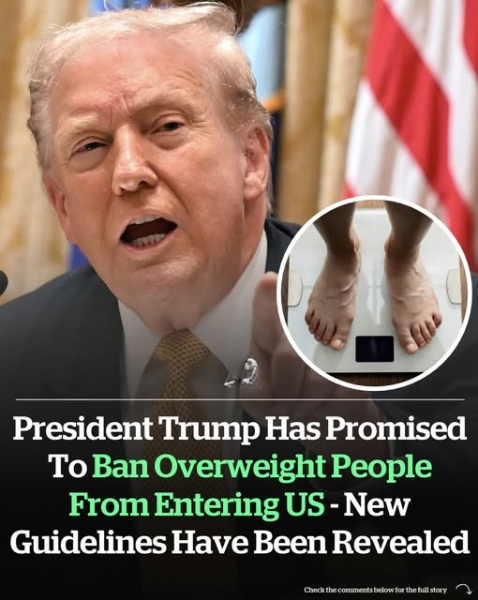Donald Trump has promised to ban overweight people from entering US, new guidelines have been revealed
The Trump Administration Introduces New Visa Guidelines Focused on Long-Term Health Costs
The Trump administration has introduced new visa guidelines that expand how U.S. consular officers evaluate the health and financial stability of visa applicants. The changes, issued through the U.S. Department of State, allow officers to consider a wider range of chronic health conditions — including obesity, diabetes, cancer, cardiovascular disease, and certain mental-health conditions — when determining whether someone may become a “public charge,” meaning financially dependent on government support.
A State Department cable sent to U.S. embassies on November 6 outlines the policy shift. It directs consular officials to assess whether applicants might require costly, long-term medical care in the future. Conditions such as high blood pressure, sleep apnea, and other non-communicable health issues can now be part of the evaluation, even though they pose no immediate public-health risk.
What Has Changed
Previously, visa medical screening focused mainly on communicable diseases and vaccination requirements. Under the new guidance, officers may consider whether an applicant’s existing health conditions could lead to significant medical expenses over time. The goal, according to officials, is to determine whether an applicant is likely to rely on public resources if admitted to the United States.
Officers may now ask:
Whether an applicant has the financial means to cover future medical care
Whether dependents have health needs that could affect the applicant’s stability
The guidelines could have the greatest impact on:
Applicants for permanent residency or long-term visas
Older applicants
Individuals with chronic medical conditions
Families with dependents who require ongoing treatment
Applicants who may not have strong financial documentation or health insurance
Potential Implications
Applicants may now need to provide more detailed information, such as medical history, financial statements, proof of insurance, or evidence of their ability to cover future care. The change may also create variations in decision-making from one consulate to another, depending on how officers interpret the broader guidelines.
Bottom Line
The new policy marks a significant shift toward evaluating the long-term financial and health implications of visa applicants. For many people seeking to enter or remain in the United States, personal health history and financial preparedness may now play a larger role in visa outcomes.


